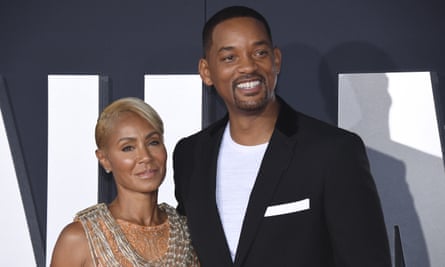What is it going to take to get rid of the enduring “good girls/bad girls” rape narrative? Controversial consent forms allowing police to examine the mobile phones of rape complainants have been scrapped, little more than a year after they were introduced. These “digital strip searches” were dropped after a lengthy, complex fight, culminating in a legal threat from two survivors whose case was taken on by the Centre for Women’s Justice and funded by the Equality and Human Rights Commission, arguing that the forms were unlawful, discriminatory and intrusive.
Rape survivors in the UK now owe a huge debt of thanks to the anonymous women, “Courtney” and “Olivia”, who brought the case despite having their own assaults and their aftermath to deal with. Courtney’s rape case was dropped when she refused to hand over her phone. The police demanded seven years of irrelevant data that predated the rape of Olivia. She said: “The police have repeatedly said to the press that they only pursue reasonable lines of inquiry. This is untrue.”
The forms will now be withdrawn and “replaced” by August. Replaced by what? Let’s keep an eye on that. The notably low number of rape cases making it to court – and even worse conviction rates – continues to be a national scandal. In this shameful context, how were “digital strip searches” of survivors, spanning years, ever considered a good idea? Obviously, anyone accused of rape deserves justice. However, what does this have to do with, say, a survivor’s three-year-old “sext” to another man or a five-day-old photograph of them wearing a bustier to a party?
Yet this is what women continue to face: a culture that not only demands proof of rape, but also that survivors prove that they were “good girls” who didn’t “deserve” to be raped and not “bad girls” who were “asking for it”.
In this way, we are plunged straight back into the archaic mindset that decrees women in miniskirts, or women walking about late at night, or women with any kind of sexual agency or social life at all, somehow colluded in their own assaults. Plunged back into scenes of rape victims being goaded by detectives, disbelieved and considered unreliable witnesses because of their lifestyle choices. All this prejudice and judgment was merely lifted out of the 1970s’ Sweeney-esque police interview scenario (“You slag!”) and quietly reframed as digital evidence gathering.
The digital strip search was a sly, knuckle-dragging throwback to “asking for it”, so good riddance to it. However, look at the collective effort it took to get rid of it. Will there be a miracle in August or will rape survivors continue to live in fear that their lifestyles/characters could end up ludicrously over-scrutinised and used against them?
Until sexual violent crime is judged on the assault and not on the victim, the good girl/bad girl deserving/undeserving narratives of rape culture aren’t going anywhere.
Johnny Depp’s past lovers know only their truth

Are exes ever truly useful as character witnesses? In the end, Vanessa Paradis and Winona Ryder were not called upon to give video evidence in court for Johnny Depp’s libel case against the publishers of the Sun. Nevertheless, their statements were read and both former partners say Depp had never been violent during their relationships.
I had conflicting thoughts on this. If you listen to a former partner saying someone was violent and abusive, then equal attention and respect should be paid to others who say the opposite. I also understand the impulse to come forward to defend someone, especially if you feel they’re being unjustly vilified.
However, it has to be acknowledged that these were essentially character witness statements that, crucially (as touched on by Ryder), only related to their own relationships with Depp. Which, in Ryder’s case, ended 27 years ago.
A potential problem with this is that, while proving nothing of direct relevance to the case, it could cast the other party as a troublemaker (as in, “Oh look, he never did it before”). The question is not whether Depp behaved like this with every woman, in all his relationships, but whether he did so during his time with Amber Heard.
A legal judgment has yet to be reached. However, different relationships have different pressures and, therefore, at least the potential for markedly different behaviour. In or out of a courtroom, it cannot be said: “It didn’t happen with me, so it didn’t happen at all.” As I say, I understand Paradis and Ryder’s desire to come forward but, as with all exes, the fact remains that they were not in that relationship.
Welcome to Jada and Will’s kiss-and-sell special

How interesting that Will Smith and Jada Pinkett Smith decided to discuss her infidelity during their marriage on her Facebook Watch web-cast chatshow, Red Table Talk, said to have been watched by more than 15 million people and counting.
That’s fair enough. In the age of social media, celebrities are motivated to tell their own stories in their own way. These days, they can elect to talk with no third-party influence or bias. It’s all about retaining control of their own narratives and why not?
One caveat could be that, previously, it was all about media intrusion and invasion of privacy – the exposure of deeply personal elements of the lives of the famous against their will. Perhaps I, in my innocence, assumed that they would not want such details to be made public under any circumstances.
So much for that. It now seems that personal exposure is absolutely fine, so long as the celebrities themselves get to monetise it. Put bluntly: celebrities invading their own privacy is a fast-evolving and lucrative revenue stream. No shade on Jada and Will specifically: the celebrity-confessional has long been with us and it’s better (cleaner) for them to be in full control.
Still, let’s not pretend that there isn’t just the teeny-weeniest smidgen of celebrity hypocrisy rolling about in there.

